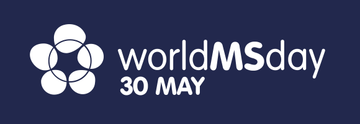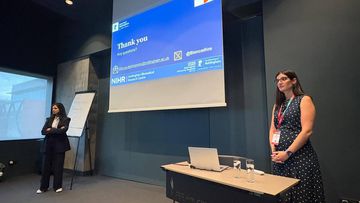World MS day: Connecting with patients
News
This World MS Day is, for the third and final year, focusing on connection. We want to encourage connection with colleagues, and with your patients themselves, as a way to get the best possible outcomes for people affected by MS.
Connecting with patients: supported self-management
One of the biggest challenges in our NHS at present is the huge level of demand being placed on healthcare professionals to meet every broadening needs. In MS, examples of increasing demand include the welcome increase in treatment options which brings associated assessment, delivery and safe monitoring, and the number of people with MS who also have comorbidities, adding further complexity to management.
This is where connecting - partnering - with those living with MS and their families is so essential, and a brilliant means of doing this is through supported self-management. It presents an opportunity to equip people to manage their condition better, to know when to contact healthcare services and how, maximising resources and making sure those who need access to an appointment are likely to get them.
It also encourages people to live healthier lives, protecting and preserving their brain health which has a positive impact on their MS and reduces their likelihood of developing comorbidities - whilst often supporting management of any they do have. Finally, in feeling well educated and supported to self-manage effectively, often people will 'pay it forward', sharing their learning with others living with MS, whether through local groups or onliner forums.
For MS Awareness Week this year, we spoke to Joanne who lives with MS and highlighted the importance of supported self-management in her own life. Communicated through three short articles, she spoke about the impact on her physical, emotional and cognitive health, the way it has encouraged her to support other people with MS locally, and how through volunteering to support others, she in turn benefits, bringing the support full-circle.
'Being referred to some local groups was really good. Sometimes you don't want to bother the doctor; it's good to have a group of people as a sounding board, who can say, 'Ooh, yes, I had that…' or 'Actually, it sounds like you should talk to your nurse.'
Joanne
Understanding how best to provide supported self-management people with MS can be challenging - the individualised nature of the support and providing this within the constricted timeframes of clinics can be difficult to navigate. MS Academy, in partnership with Merck, have developed a specific course to equip healthcare professionals with the tools to support their MS patient's self-management of symptoms and to provide evidence-based lifestyle information for their patients. The course is freely accessible online and is still available to new delegates.
Small changes towards supported self-management
Here are a few examples of simple changes that might make a big difference, gathered from the experiences of other healthcare professionals across the country:
Ensure good patient-facing education on MS relapse is readily available and easily accessible to help patients manage relapse with confidence and reduce reliance on their specialist nurse like this project by neurology physician Nicole Japzon and specialist nurse Flordeliza Madriaga.
There is lots of information online, and other clinicians have developed relapse information packs, so if you don't yet have any, perhaps you could signpost people to existing advice like this video with MS specialist nurse Miranda Olding via the MS Trust, the MS Society, or shift.MS
Consider sending out a home UTI kit to support self-management and reduce one of the top reasons for non-elective admissions in the UK, like specialist nurse Ruth Stross's initiative. It can be rolled out to reduce incidence of UITs, or manage them early on before they can trigger worsening of symptoms or hospitalisation.
Related articles
Encouraging excellence, developing leaders, inspiring change
MS Academy was established in 2016 and in that time has accomplished a huge amount with exciting feedback demonstrating delegates feel inspired and energised along their personal and service development journeys. The various different levels of specialist MS training we offer are dedicated to case-based learning and practical application of cutting edge research.


